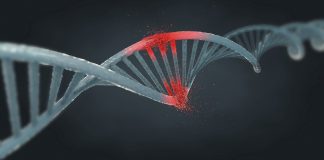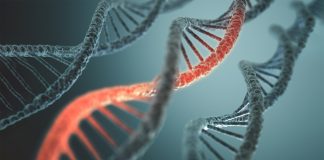Jason Padgett, the man turned math genius after an assault
Jason Padgett was exactly as one would expect someone who has no interest in school to be. He was only interested in parties and bars and was a magnet for both fun and trouble. That’s how he ended up being expelled, which didn’t affect him too much. However, getting beaten savagely changed his life forever, in the most unimaginable way possible.
Food and health with Dr Michael Orlich of the Loma Linda University Medical Center
When the founders of the Loma Linda University Medical Center in California laid the foundation, their purpose was somewhat paradoxical. Christians to the bone, and Adventists on top of that, they echoed the words attributed to the great reformer Martin Luther: “Even if I knew that tomorrow the world would go to pieces, I would still plant my apple tree.”
My daily horoscope really fits! True or false?
The daily horoscope is sometimes seen as a quasi-scientific method of predicting the future, other times as a preoccupation of childish adults, a way of calming one’s curiosity about tomorrow.
Can we simulate evolution?
When a process is thought to be too slow or impractical to test experimentally, simulation science is a valuable tool for testing its validity.
Humans and chimpanzees
Is the chimpanzee the human’s closest relative in the animal world? According to the theory of evolution, the answer is a categorical YES. Specialised literature abounds in generous estimates of human-chimpanzee genetic similarity, ranging from 96% to 99%. But how are these percentages obtained, what assumptions do they hide, and what do they mean beyond the evolutionary interpretation?
Science has proven that God doesn’t exist. True or false?
Marquis Pierre-Simon Laplace (1749-1827), a mathematician and astronomer and one of history’s most influential scientists, once had a meeting with Napoleon Bonaparte. Laplace came to offer the first consul of the republic a copy of his book, “Traité de mécanique celeste” (Treatise on Celestial Mechanics)—an analysis of the solar system that expanded on Isaac Newton’s conclusions.
Gravitational waves and the inflation of certainty
On 17 March 2014, the science and technology blog of the prestigious newspaper The New Yorker announced, "A scientific breakthrough lets us see to the beginning of time". Lawrence M. Krauss, renowned physicist and author of "A Universe From Nothing: Why There is Something Rather than Nothing", commented in his article on the news that went around the world, heralding a landmark moment...
The risks of mRNA vaccines in the COVID-19 era: How we know they don’t alter our DNA
Risks of mRNA vaccines in the COVID-19 era: How we know they don't alter our DNA.
Two false oppositions: reason vs. faith and science vs. religion
"Intelligent, scientifically trained people no longer believe (or can no longer believe) in God."
The faith of a scientist
The field of science was flourishing, and amid its youngest and brightest, one student in particular consistently topped physics and chemistry courses, took its academic prizes and was courted with offers of scholarships by prestigious universities. His trajectory was toward the heights of the scientific world.
The greed for knowledge
If science were a religion, how violent would it be compared with Christianity?
Memories that shape the future
Out of the endless series of events we experience, some we remember, and others we do not. Some often come to mind and we relish recounting them, while others we wouldn’t reveal for anything in the world.
Do you know how much your digital footprint costs? Lessons from a hacker who changed his mind
After I published the analysis regarding the mirage of cryptocurrencies, I received an irresistible invitation: an IT consultant offered to give me a demonstration, in front of the laptop, of the connection between cryptocurrencies and the black market. The exercise turned into a three-hour discussion on cybersecurity and ended with unexpected conclusions about identity theft for political purposes.
The God particle?
Very few ordinary people seem to be overflowing with passion for quantum physics, as the field involves a high degree of abstraction and relatively complicated mathematical equations.
Future technology and current concerns
"[B]ut test them all; hold on to what is good" (1 Thessalonians 5:21).


























